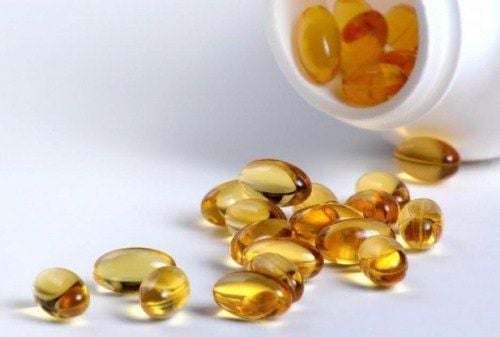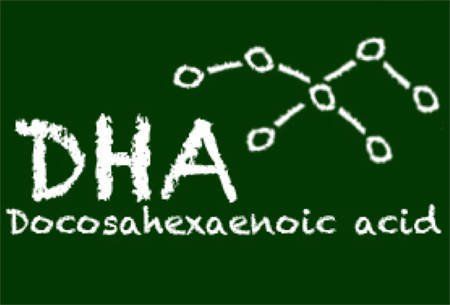This is an automatically translated article.
The article is professionally consulted by Master, Doctor Phan Thi Cam Van - Neonatologist - Pediatrics - Neonatology - Vinmec Danang International General HospitalDHA is an omega-3 fatty acid that is very important to humans. In particular, the role of DHA in children is related to the perfection of the nervous system, improving immunity, developing vision function and enhancing intelligence.
1. The role of DHA
DHA is a fatty acid belonging to the group of Omega-3 fatty acids (unsaturated fatty acids with 22 carbons, 6 double bonds, the first double bond at the number 3 carbon position) which is essential for brain development, vision, increase human immunity.
All these unsaturated fatty acids are essential for the body, but we cannot synthesize them on our own, but must be supplemented from outside food sources.
2. What are the effects of DHA for children?
2.1 Visual development During pregnancy and the first years of a child's life, DHA accumulates in the retina - the command center for the eyes' ability to see. Therefore, DHA accounts for a very high percentage in the retina and plays an important role in the development of the optic nerve, helping to improve vision in children.
2.2 Brain development DHA is also essential for brain development because this fatty acid accounts for a very high percentage of gray matter that helps create intelligence. The role of DHA in children also stimulates the sensitivity of neurons, helping to transmit information quickly and accurately. Children who are deficient in DHA during development will have lower IQs than those who are well absorbed. There are studies that show that children who are breastfed and have adequate nutrition with DHA will have high IQs and low rate of neurodevelopmental retardation.

DHA giúp trẻ phát triển trí não
2.3 Physical development DHA is also closely related to infant's head circumference, weight and length. Supplementing enough DHA for the fetus will support the good development of blood vessels, which can reduce the rate of postpartum depression and the baby will weigh more. Immediately after birth, a baby's brain weight has been shown to be equivalent to about 70% of an adult's brain weight. Therefore, the fetus in utero requires a large amount of DHA to respond to the growth of the brain during pregnancy and the first months of life.
2.4 Other Benefits In addition, DHA's role in children includes increasing immunity, thereby reducing the risk of developing allergic reactions. In older children and adults, DHA will promote the effect of reducing total cholesterol, blood triglycerides and LDL-cholesterol (bad cholesterol) to help prevent atherosclerosis as well as myocardial infarction. Omega-3 fatty acids also protect the body against stroke and reduce arthritis.
3. Supplementing DHA for children
3.1. Pregnancy The baby's need for DHA appears from the time they are in the womb. Therefore, the diet before and during pregnancy is very important for the ability to store essential fatty acids for the fetus. Especially in the last 3 months of pregnancy, the fetus needs a lot of nutrients for the development of the nervous system and blood vessels.
Pregnant women should eat a lot of sea fish, seafood and vegetable oils - an important natural source of omega-3 to help provide DHA for the fetus. Pregnant women should also use infant formula with a DHA content of about 200mg/day to meet the nutritional needs of the fetus.

3 tháng cuối thai kỳ mẹ bầu cần bổ sung DHA
3.2. Neonatal period Both premature and full-term infants require adequate intake of DHA because they are not able to convert the DHA precursor from vegetable oils, or other food substitutes, to this essential fatty acid. When born, breast milk is the main source of DHA to help children develop good intelligence. This is why it's so important to exclusively breastfeed your baby for the first 6 months and up to 2 years of age.
Actually breast milk will contain DHA in different concentrations, depending on the amount of fat in the mother's diet. For babies under 12 months of age, the optimal DHA content is 0.32% of total fatty acids, equivalent to 17mg / 100kcal. Children from 1 to 6 years old need to be supplemented with DHA with a content of about 75mg/day.
In case the baby is not breastfed, it is necessary to choose alternative foods containing all the above fatty acids. Some major brands of powdered milk will be fortified with DHA in the form of pure oil derived from algae, this nutrient ingredient has increased the price of milk.

Trẻ được bổ sung DHA theo từng giai đoạn
3.3. The first years of life According to research, mothers in developing countries, including Vietnam, give their children too little DHA compared to the WHO recommended level. Therefore, parents need to diversify their children's diets, giving priority to choosing foods rich in DHA such as:
Animal organs: Liver and fish fat; Sea fish: Salmon, tuna, herring, sardines, halibut, mackerel; Egg; Milk; Types of lowers

DHA có trong một số loại thực phẩm
4. Note about DHA tablets for babies
Currently, fish is not the only source of DHA, but there are also DHA baby tablets extracted from plants. The advantages of plant-based DHA are:
Does not contain ocean toxins such as lead and mercury that damage the nervous system of infants and young children; DHA for babies of plant origin is made in the form of small, tasteless softgels, so it is easy to take and limit the phenomenon of vomiting when used. Answering the question "Should children take DHA regularly?", doctors said that early and continuous DHA supplementation will bring long-term benefits to children's development. But getting too much DHA leading to excess is also not good because there is a risk of causing cell damage.
Thus, although the role of DHA in children is to help improve brain, cognitive and optic nerve development, the use of additional DHA tablets for babies is only necessary when the current nutrition is not enough. DHA-rich foods. Parents still need to talk with nutritionists or doctors to increase nutrients for children from natural and safe food sources, ensuring comprehensive development.

Phụ huynh nên nhờ đến sự giúp đỡ của bác sĩ
Parents can learn more:
Signs of zinc deficiency in children
Micronutrient deficiency and failure to gain weight in children
Please regularly visit Vinmec.com website and update useful information to take care of your child. Take care of the baby and the whole family.
Article referenced source: National Institute of Nutrition













